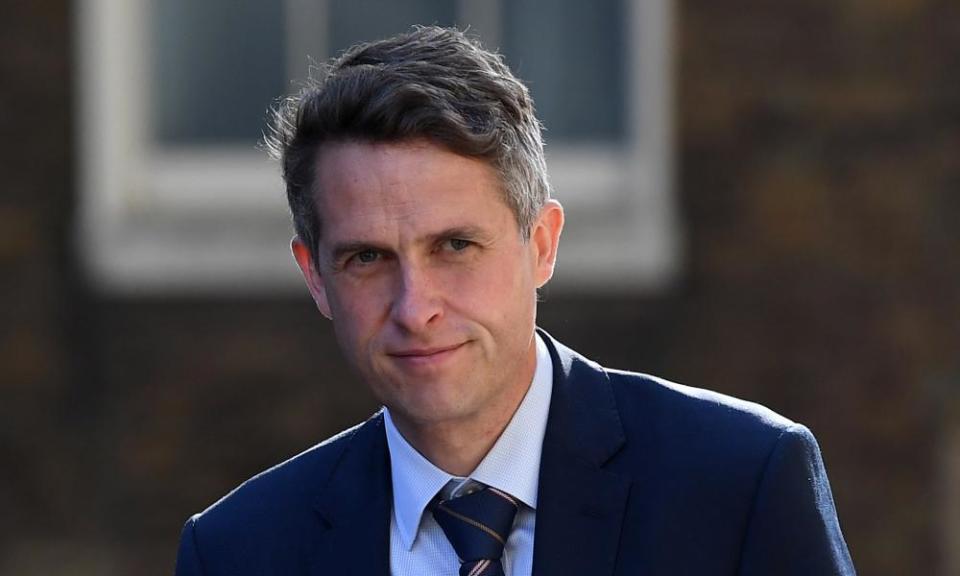Gavin Williamson's apology to school pupils unlikely to be his last

Gavin Williamson has told the nation’s schoolchildren he is “incredibly sorry” for the chaos and disruption of the past few months.
Apologies are rare indeed from a government whose standard operating model seems to be “never apologise, never explain.” But with headteachers who have glimpsed the A-level results warning of widespread and inexplicable discrepancies, it seems unlikely to be his last.
Conservative MPs’ WhatsApp groups were abuzz with alarm on Wednesday about the risk that the government could be forced into a Scotland-style U-turn once the results are made public.
Determining grades for the Covid-19 cohort in a way that pupils and parents perceive as fair was always going to be a formidable challenge. But some colleagues believe the education secretary failed to get a grip on the issue.
Boris Johnson handed Williamson an extraordinary get-out-of-jail card when he restored him to the frontbench less than three months after Williamson was sacked as defence secretary for leaking details about Huawei from a national security council meeting. He denied being behind the leak.
But Johnson has never appeared to trust him as Theresa May once did. Williamson has been outside the inner circle of powerful decision-makers who have driven the government’s response to the pandemic, and occasionally the subject of hostile briefing.
Williamson’s supporters say he has been landed with an extraordinary difficult set of circumstances, and kept on a tight rein by an interventionist Downing Street.
But he has been blamed for several missteps, including the failure to ensure children received more remote teaching during lockdown – promoting Johnson to announce a “big summer of catchup”, which ultimately turned out to mean some funding for private tutoring in the next academic year.
He has also appeared unable to win over teachers in the way that Rishi Sunak seemed to charm other trades unions, at least while the furlough scheme was in full effect.
“The thing you have to know about Gavin is that he has a clique of people who he favoured as chief whip who are supportive of him, and there’s another group who think he’s completely useless,” said one former cabinet minister. “There’s a grand canyon of difference between the two groups. Recent empirical evidence would suggest the latter group are closer to the truth.”
The cross-party education select committee highlighted the risks of botching the exams season a month ago, saying it was “extremely concerned,” about whether disadvantaged groups could be disproportionately affected.
“Ofqual must be completely transparent about its standardisation model and publish the model immediately to allow time for scrutiny,” the MPs’ report said. The exams regulator will not do this until Thursday.
The MPs also called on the government to ensure the appeals process would not just benefit “the sharp-elbowed and the well-heeled”.
The latest changes to the appeals process, with mock results to be taken into account, were welcomed. But the manner of their announcement – late at night after Williamson’s Scottish counterpart, John Swinney, had given what Tory critics called “the longest resignation speech in history, minus the resignation” – smacked of panic.
And by the time Williamson’s junior minister Nick Gibb had toured the broadcast studios, the reassuring “triple-lock” trumpeted in the announcement had been revealed to be a modest change likely to affect only a small group of people.
Not only that, but Ofqual made clear it would not be able to say until next week how the tweaked appeals system will work, meaning days more of uncertainty for many thousands of anxious teenagers and their families.
Related: Exam results in England, Wales and Northern Ireland: Q&A
Williamson insists the government’s approach to standardising grades has been robust and fair, and his department has been reassuring Conservative backbenchers that Thursday’s results won’t reveal the wide discrepancies between those with rich and poor backgrounds that were present in Scotland’s results.
But in Scotland it was the drip, drip of egregiously unfair cases that ultimately prompted the SNP to change course – and early indications are that England’s results will provide many more.
Aside from his sacking after May said there was “compelling evidence” of his involvement in the leak to the Daily Telegraph, Williamson’s tenure as defence secretary is perhaps best remembered for his telling Russia to “go away and shut up”.
Some at Westminster believe it is only a matter of time before he receives the same message himself, from Johnson.

 Yahoo News
Yahoo News 